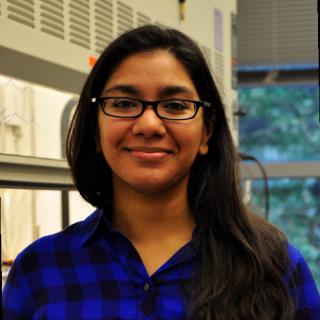
Brice Wilson, Ph.D.
- Center for Cancer Research
- National Cancer Institute
- 576/110
- Frederick, MD 21702
- 301-846-7156
- brice.wilson@nih.gov
RESEARCH SUMMARY
The Assay Development and Screening Section (ADSS) develops, optimizes, and implements high throughput screening campaigns for the discovery of biologically active agents for the study and potential treatment of cancer. These campaigns involve close collaboration with CCR Principal Investigators who have targets of interest which may prove tractable for pharmacologic intervention. These purpose-built assays are then used to screen hundreds of thousands of natural products extracts as well as pure compounds for the identification of active agents. Working closely with both CCR investigators and other MTP section, single active entities are isolated, structurally elucidated, and further characterized for activity. ADSS has tremendous expertise in both cell based and biochemical high throughput assay development.
Research
- High throughput cell based assays for chemotherapeutic discovery
ADSS develops both targeted, using pathway reporter technologies, and general cytotoxicity assays for the discovery of potential chemotherapeutic agents. These assays have been used to discover bioactive pharmacologics for numerous cancer types, including Merkel cell carcinoma, rhabdomyosarcoma, renal cell carcinoma, and colon cancer, among others.
2. High throughput biochemical assays for chemotherapeutic discovery
ADSS uses a number of assay formats and technologies to create screening platforms to discover compounds capable of modulating protein behavior in-vitro. This includes enzymatic assays and protein-protein interaction assays. Using these assays, ADSS has discovered small molecule modulators of kinase, protease, ubiquitin ligase, and DNA repair activities
3. Natural product mechanism of action studies
During the course of our screening campaigns ADSS plays role in the discovery of chemically unique and biologically active natural products which have an unknown mechanism of action (MOA). To better understand the behavior of these molecules, we apply modern techniques to determin the intracellular mechanism of action of these molecules.
Publications
Chemical Evolution of Aplithianine Class of Serine/Threonine Kinase Inhibitors
Biochemical and biophysical characterization of inositol-tetrakisphosphate 1-kinase inhibitor
Furanoheliangolides from Centratherum punctatum and a General Approach for Stereochemical Assignment of Flexible Chiral Side Chains
Discovery and Synthesis of a Naturally Derived Protein Kinase Inhibitor that Selectively Inhibits Distinct Classes of Serine/Threonine Kinases
Biochemical Discovery, Intracellular Evaluation, and Crystallographic Characterization of Synthetic and Natural Product Adenosine 3',5'-Cyclic Monophosphate-Dependent Protein Kinase A (PKA) Inhibitors.
Team
Biography

Brice Wilson, Ph.D.
After earning a bachelor of science degree in biochemistry from Texas A&M University, Dr. Wilson joined the Department of Pharmacology and Molecular Sciences at the Johns Hopkins University School of Medicine. At Johns Hopkins Dr. Wilson earned his Ph.D. working in the laboratory of Dr. William Isaacs developing small molecule inhibitors of the prostate cancer biomarker, AMACR. Following this, Dr. Wilson joined the National Cancer Institute as a Post-Doctoral Fellow ultimately joining the Molecular Targets Program (MTP). While in the MTP, Dr. Wilson made significant contributions to several biochemical screening campaigns, including cancer associated kinases, proteases, and ubiquitin ligases. Given this success, Dr. Wilson was promoted to Research Fellow and eventually to Staff Scientist in 2019. After more than a decade of substantial productivity, Dr. Wilson was appointed Section Leader of the Assay Development and Screening Section in 2024.
For a complete list of Dr. Wilson's work, please follow this PubMed bibliography link
